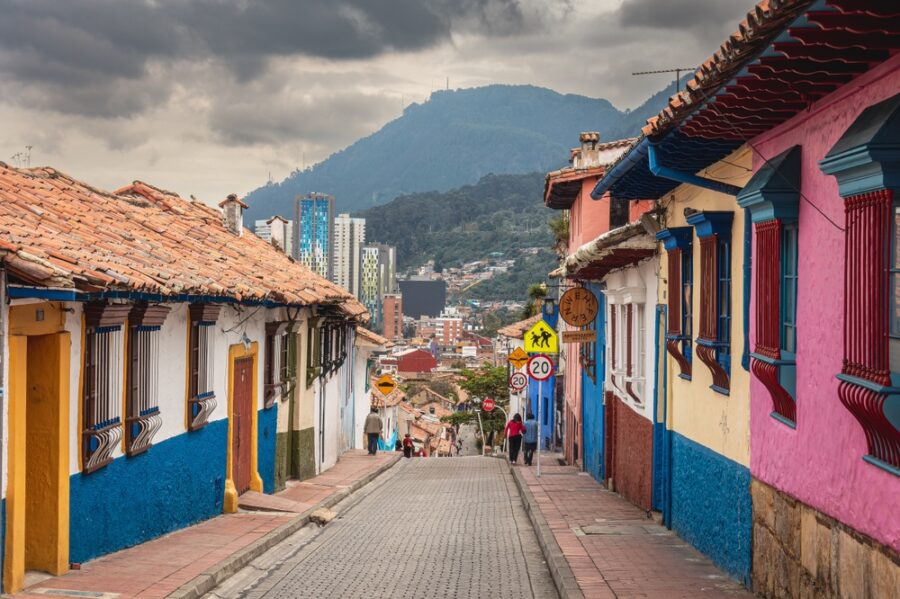Keno added to licensing regime in Colombia

Colombia’s gambling regulator, Coljuegos, has awarded a concession for lottery game Keno, which is expected to generate more than COP485 billion for the country’s healthcare system over the next five years.
The lottery-style game will be among the first in Latin America to use blockchain technology for ticket issuance, a move aimed at improving transparency and security for bettors.
Coljuegos President Marco Emilio Hincapié said, “The gaming concession was awarded through an open process for all operators interested in participating. We are pleased to inform the public that the award was carried out transparently and with a plurality of bidders.”
Under the concession, Keno will operate across four regions, each managed by a different operator. Keno SAS Regional Operator for region one, Costa Operador Keno SAS for region two, Keno Region 3 SAS for region three, and Blinkazar SAS for region four.
Each operator will have a four-month preparation period before the game launches in January 2026. Coljuegos said over 16,000 sales terminals will be installed nationwide to support the rollout.
Hincapié added, “With this, we seek to expand the offering for gamblers and consolidate the games of chance sector as a fundamental pillar of the national economy.”
According to Coljuegos, market research estimates that Keno sales will reach COP2.3 billion.
Separately, last month Coljuegos announced that it had blocked prediction market platform Polymarket for offering unauthorized betting on electoral events.
Charlotte Capewell brings her passion for storytelling and expertise in writing, researching, and the gambling industry to every article she writes. Her specialties include the US gambling industry, regulator legislation, igaming, and more.
Verticals:
Sectors:
Topics:
Dig Deeper
The Backstory
Regulatory momentum sets the stage
The latest moves in gambling oversight reflect a sector in flux, with authorities testing new levers to capture tax revenue, curb illicit play and channel demand into controlled frameworks. In Colombia, the regulator Coljuegos is pursuing a twin-track approach: expanding legal offerings while hardening enforcement. The agency awarded a concession for Keno it expects to funnel more than COP485 billion to health care over five years, and it plans a national rollout via more than 16,000 terminals by early 2026. At the same time, Coljuegos ordered ISPs to block the prediction market Polymarket for operating without authorization and for allowing bets on elections, which are illegal in the country. The regulator says it has blocked more than 28,000 illegal sites and will add thousands more to protect a licensed market that funds public services.
The tightening posture is not limited to Latin America. Mongolia’s parliament adopted amendments to its licensing law that ban all online gambling and betting, escalating penalties from fines to prison terms. Lawmakers also outlawed the use of payment accounts and digital assets for gambling. The move followed a high-profile case involving nationals linked to offshore operations in the Philippines. The decision aligns with a zero-tolerance stance now in effect, as the Parliament’s media office has signaled the changes will move through standard legislative procedures. Background on the chamber and its work is available on the Parliament of Mongolia website. Together these actions underscore how governments are recalibrating policy to match domestic risk appetites, political mandates and state revenue goals.
New Zealand’s closed model as a live experiment
New Zealand is preparing a restricted igaming market that industry compliance leaders see as a real-time test of whether fewer licenses can produce steadier outcomes. The government introduced its Online Casino Gambling Bill, which would cap the market at 15 licenses and formalize a path for operators to register interest. Advocates of the approach argue that constrained entry reduces a race for market share that can trigger aggressive promotions and, later, reactionary clampdowns. BetComply’s Mike de Graaff called the setup a “good test case” and warned that overregulation can push players to the black market. He contrasted the plan with the Netherlands’ broader opening, which saw an initial surge in player acquisition tactics and subsequent restrictions. The lobbying has already begun: SkyCity has pressed to cut licenses to five, and TAB New Zealand has raised questions about its eligibility under the framework.
Industry participants will watch whether the licensing filter, paired with clear advertising and safer gambling rules, produces fewer compliance flashpoints. Proponents argue a smaller cohort can set norms early and avoid the backlash that often follows headline incidents. The stakes are high given the government’s balance between channeling play into domestically taxed products and deterring illegal sites. If the rollout lands as intended, the market could become a blueprint for midsize jurisdictions wrestling with similar trade-offs. For a snapshot of industry expectations and concerns around the transition, see our coverage of New Zealand’s closed licensing regime.
Keno’s comeback crosses channels
Keno is quietly reemerging as a growth lever in both retail and online. Colombia’s concession plans four regional operators and a four-month build-out period ahead of a January 2026 launch. Coljuegos said the game will use blockchain for ticket issuance to boost transparency, one of the first such deployments in Latin America. The model aims to scale reach with widespread terminals while using technology to strengthen audit trails. Market research cited by the regulator projects sales will reach COP2.3 billion, though the revenue contribution to health care is the core headline. The initiative also signals how state lotteries and licensed games can expand responsibly when enforcement against illegal competitors tightens in parallel.
In North America, the format is gaining digital traction. Caesars Digital rolled out a branded version of Pixiu Gaming’s title across its online casino apps, giving players in select markets exclusive access to Caesars Palace Bonus Draw Keno. The launch fits a broader playbook of recognizable, low-friction games that convert casual users and deepen loyalty program ties. By pairing familiar mechanics with brand-forward design, operators can extend session time without taking on the higher regulatory and integrity risks that surround more complex betting products. The cross-market momentum suggests keno can serve as a bridge between legacy retail lottery audiences and newer online cohorts, particularly where regulators seek channelization wins without stoking controversy.
U.S. suppliers seek scale through compliance
Suppliers are moving state by state to unlock distribution, signaling the cost and value of regulatory approvals in the United States. Sports and esports content provider Beter secured a vendor license in Colorado, its second U.S. foothold after New Jersey. Colorado will be the first state where bettors can access the firm’s ESportsBattle tournaments, delivered through its partnership with Bet365. Beter produces content for roughly 700,000 events a year, including live streams and odds feeds, which raises integrity demands that regulators scrutinize closely. The company says approvals in tightly regulated states validate its controls on fair play and data quality. It is also pursuing licenses in North Carolina, Arizona and Indiana, reflecting a pipeline where each authorization widens wallet share with existing operator partners.
The U.S. path illustrates how compliance becomes a distribution strategy. Vendors that clear licensing hurdles can slot into multiple books via one integration, adding marginal content that differentiates operators at low switching cost to players. For regulators, vendor vetting is a pressure valve: they can allow innovation in controlled increments without reopening statutory frameworks each time. The resulting patchwork is slower than national regimes but stabilizes markets after early volatility. That trade-off mirrors debates underway in newer jurisdictions abroad.
Enforcement lines shape product and market design
The global through line is that enforcement choices are shaping product portfolios and market structures. Colombia’s ISP blocks of unauthorized betting sites and its simultaneous expansion of licensed games show a preference to pull players into taxed channels while barring gray-area propositions like election markets. Mongolia’s full online ban takes the opposite tack, prioritizing deterrence and signaling zero tolerance after cross-border scandals. New Zealand’s closed-license pilot attempts to balance both impulses by constraining supply up front and minimizing the need for corrective measures later. In the U.S., incremental state licensing keeps innovation on a tight leash but rewards persistent suppliers and brands able to localize quickly.
The next phase will test whether these bets pay off. Colombia will need to demonstrate that keno’s blockchain promises aren’t just window dressing and that crackdowns reduce illegal play. New Zealand must land a licensing cohort that collaborates rather than competes at the edge of rules. Mongolia’s ban will hinge on payment blocks and international cooperation to curb offshore access. U.S. suppliers will need to prove that esports and other fast-cycle content can meet integrity standards at scale. The policy choices are diverging, but the stakes converge on the same metrics: channelization, consumer protection and sustainable tax flows.








